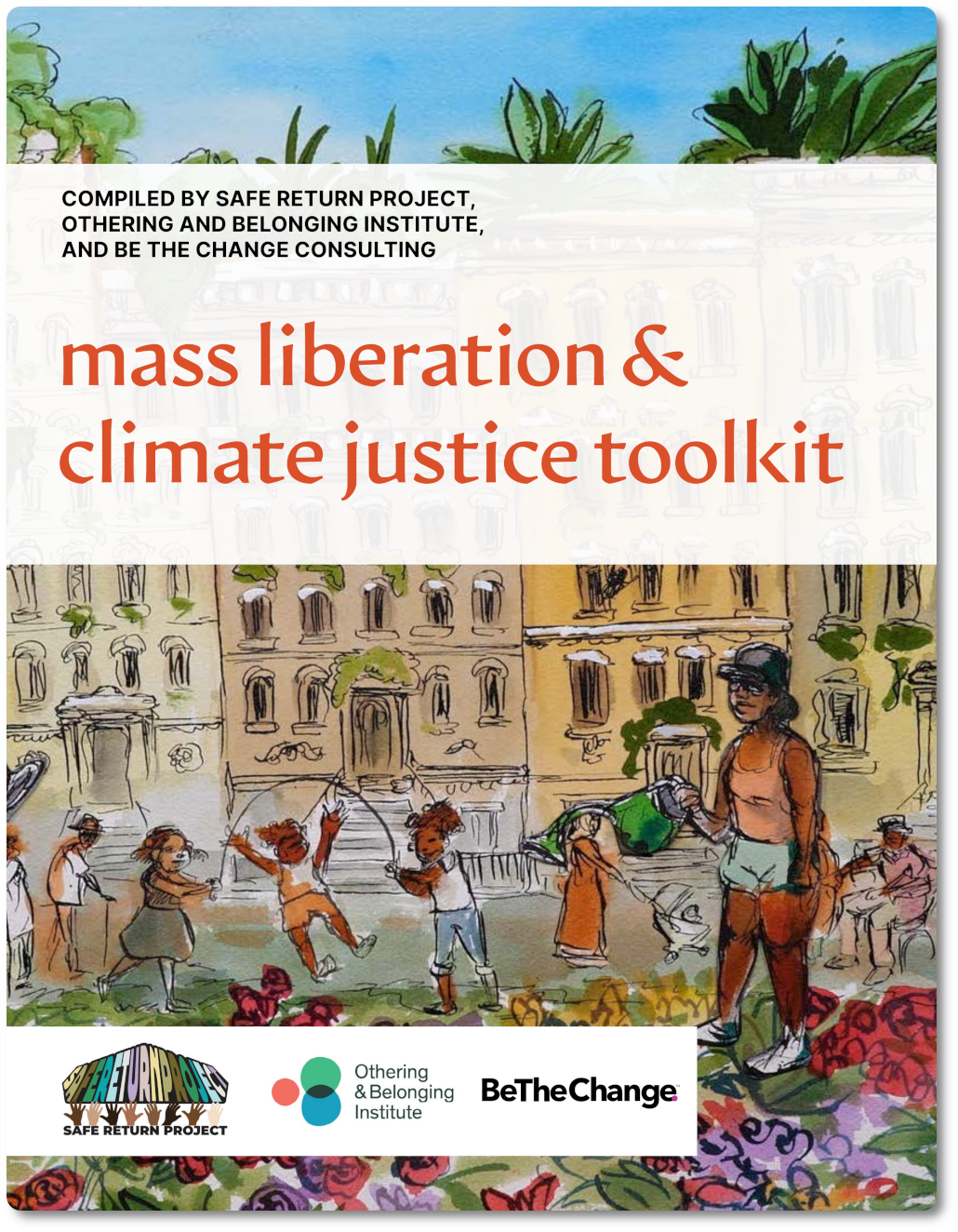The climate crisis and mass incarceration are two crises that have shared roots and affect many of the same communities, yet are often talked about and organized around as separate issues. What connects them? How can we talk about them in ways that resonate and advance solutions to both?
OBI and the Safe Return Project worked together to research, develop and try out narratives that draw these connections. By facilitating generative community workshops, interviewing movement leaders, and researching historic movements' narratives, we crafted analysis and narrative to support transformative change. We collaborated with Sharp As Knives on an animated video we offer as a resource for advancing this work. We also collaborated with Be the Change to compile and publish workshop activities in a set of facilitator guides we are publishing as a toolkit. We hope you find these useful and inspiring! Download a PDF of the toolkit here, and watch a webinar launching the resources here.
Video transcript
We are building a future where everyone has the resources we need to thrive. Clean water and air, nutritious food, a place to live, education, basic income, and a caring community. A shared future where we're all valued and have equal access to meaningful work. But every time we make progress on one part of this vision, there are big lies that are foreclosing on our community's progress and the future of other communities. A big lie. Some places must be treated as sacrifice zones. In places like Cancer Alley in Louisiana and Port Arthur, Texas where Black, brown and poor people have been redlined into polluted neighborhoods, suffering from asthma, lead poisoning and cancer as they suffer from overt policing and mass incarceration. A big lie, you can extract people from their communities and incarcerate them out of sight, and this will make communities safer and healthier. A big lie, you have to make trade-offs that sacrifice some people for other people to be well.
You have to have pollution if you want to have good jobs. If you want safe neighborhoods, you have to have over-policing and mass incarceration. A big lie. We have to spend billions on extractive industries like oil prisons and police. There are thousands of city blocks where more than a million dollars is spent every year to incarcerate people who live on one block. Billions of public dollars go towards giving fossil fuel corporations free support. What would be possible if this public money were invested in an economy that works for all people and the planet? A big lie, there are not enough resources to meet all communities' needs. The truth is that nature and all of us together are abundant and all communities could be thriving. But resources have been misused by the powerful and created the brutality of mass incarceration, the climate crisis and the heartbreak of losing loved ones to violence.
Our bodies are extracted out of communities to be exploited. We call this being a fence line community. Just across our fences are refineries, redlining and gentrification, segregation, coloring, everything from our architecture to the asthma in our lungs. Maybe we're in Appalachia watching prison projects being planned while our communities struggle against joblessness, addiction, and overdose. Maybe we're in a Texas prison the day the storms come or a California prison when the fires rage hot, watching climate change wreak havoc and knowing incarcerated people are on the front lines fighting fires.
Those of us who have survived know we need transformation. We know our futures are linked and our struggles are connected. We tap into our collective abundance, connection, and power. We must divest from zero-sum narratives, from communities competing, and unite against the systems and elites, keeping us struggling to survive.
We've seen the transformative power of movements coming together against our common enemy of an extractive system. We've seen immigrants and formerly incarcerated people come together and defeat jail expansions in California. In Hawaii indigenous people came together with military families to demand the military close the Red Hill fuel facility, which had been leaking petroleum into the water for decades, and they won. We've done this in community and we know it works. We all deserve the opportunity to thrive, find joy and dignity in our work, and live in right relationship to nature. And right now like watching a rose sprout from a concrete wall, we're building to be free from systems of oppression for a just world where everyone's liberation is interconnected. In other words, we are watering the roses now. Come join us, and we'll liberate each other. The movement for a more just world starts with you.


